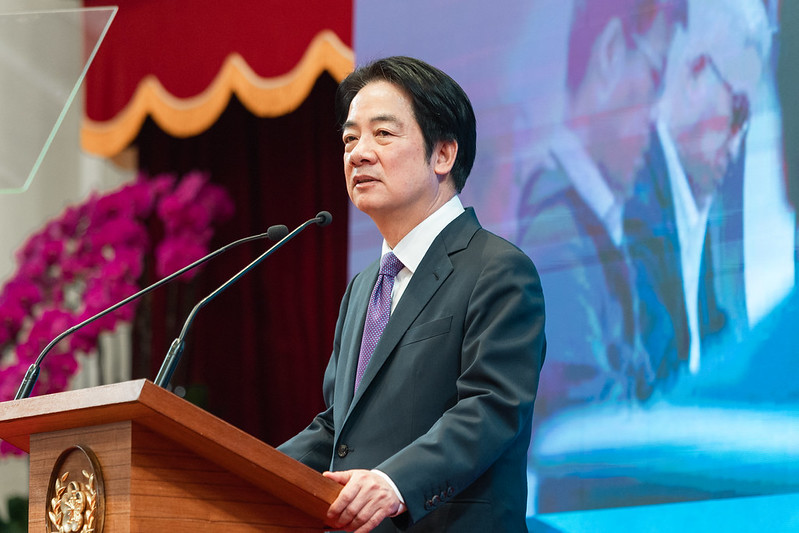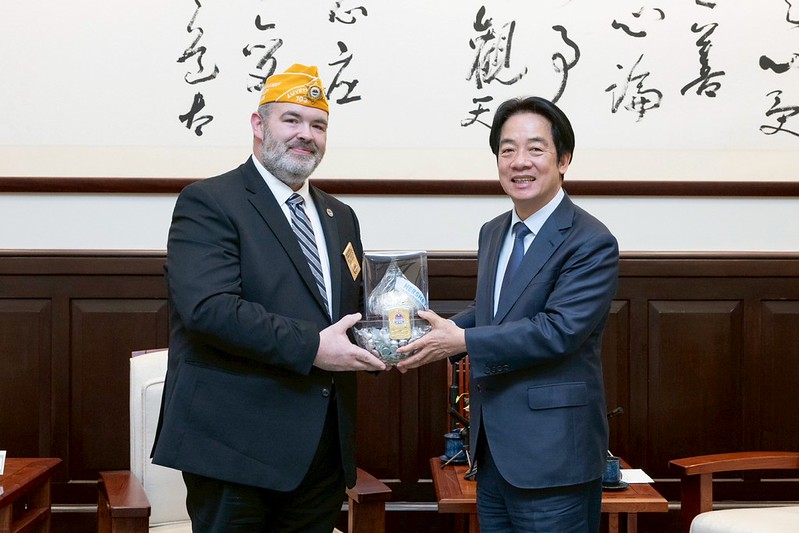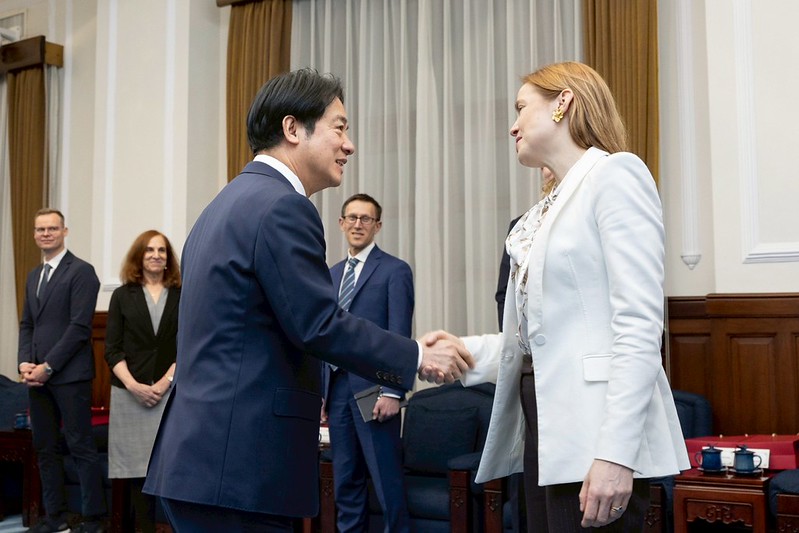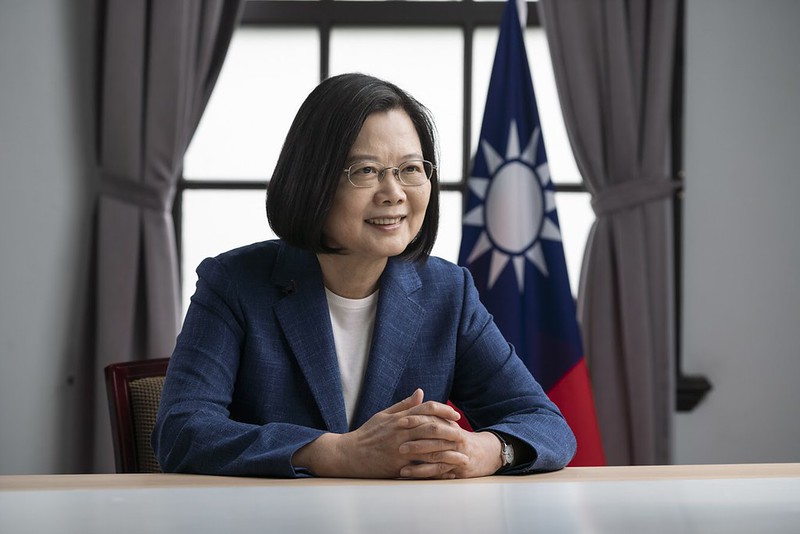News & activities
 News releases
News releases
On the afternoon of June 19 local time in Denmark (evening of June 19, Taipei time) President Tsai Ing-wen addressed the Copenhagen Democracy Summit by video at the invitation of the Alliance of Democracies. In addition to sharing Taiwan's epidemic prevention experience, President Tsai pointed out that as COVID-19 triggers a shakeup in global supply chains and economic strategies, like-minded democracies from around the world should cooperate more closely. An investment agreement between Taiwan and the European Union, for example, would be a great first step. We should use the power of economics to strengthen our democracies. The president also mentioned that in her second term as president, Taiwan will continue to stand for democracy at home, and will also deepen our ties with democratic countries around the world.
Following is a transcript of President Tsai's remarks, which she delivered in English:
It is a privilege to take part in the third Copenhagen Democracy Summit by video today. I want to thank the Alliance of Democracies for giving me this opportunity to address you at such an important intersection for global democracy.
I also want to thank your founder, Mr. Rasmussen, for the support he continues to offer to Taiwan. Our country cherishes your friendship very much.
Earlier this year, the world watched as the people of Taiwan went to the polls. Almost three quarters of our voting population turned out to cast their votes. Together, the Taiwanese people chose democracy as our common denominator, and I was honoured to be elected to serve them for a second term.
Immediately after the election, however, the world was plunged into the COVID-19 crisis. Fortunately, Taiwan was better prepared than most.
We learned important lessons from the SARS outbreak in 2003 so that we would never be caught off guard again. And we have shown that, with the right measures, it is possible to control the spread of the virus without sacrificing our most important democratic principles.
Indeed, our democracy has been a critical asset in Taiwan's fight against COVID-19. It has given everyone a stake in stopping this pandemic. And as a government, we have joined our people in the common endeavor of containing the virus.
Thus far, we have weathered the storm thanks to a combination of government action, public diligence, and a great deal of hard work from countless everyday heroes.
It was therefore all the more disappointing that the World Health Organization put politics before health and failed to invite Taiwan to share our experience at this year's World Health Assembly.
Nevertheless, we stand ready to support any country that needs our help. Throughout the COVID-19 crisis, Taiwan has pooled all available assets to limit the spread of COVID-19.
We have rapidly expanded our production of PPE, engaged in extensive contact tracing by merging our immigration and public health databases, promoted the use of face masks and social distancing, and educated the public on best practices.
By helping us contain the virus, these steps have now put us in a position to help others.
At the end of January this year, Taiwan was producing less than 2 million face masks per day. By the end of May, our daily production topped 20 million. As COVID-19 has spread across the world, we have donated essential medical supplies to over 80 countries, including more than 52 million face masks.
For Taiwan, offering help has never been a question of quid pro quo. It is simply what friends do in times of need.
We believe we should take a similar view about helping ourselves in order to help others when it comes to democracy as well. First, we need to take a hard look at our own democracies and ask how they can be further strengthened.
Democracy is born of the joint commitment of each and every citizen, and every member of society has a responsibility to defend it. When we build, renew, and sustain democracy at home, we are supporting the cause of democracy around the world as well.
Likewise, by allowing anti-democratic forces and autocrats to advance abroad, we are neglecting our own democratic values.
In particular, our thoughts today are with the people of Hong Kong. Taiwan has joined the international community in urging the Beijing authorities to honour their obligation to respect Hong Kong's fundamental freedoms.
We do not believe in merely looking on as others defend their freedom. As the situation in Hong Kong continues to deteriorate just weeks before the 23rd anniversary of the handover, Taiwan will continue to provide necessary humanitarian assistance to the people of Hong Kong.
Taiwan stands on the frontline of the global community of democracies. Authoritarian forces regularly target our people through hybrid tactics meant to intimidate, isolate, and misinform. Yet our January elections proved that these assaults have only strengthened our resolve to defend our democracy.
Indeed, some of the world's most successful democracies were born from times of great hardship. In Taiwan, we do not take our hard-earned freedom for granted, and we hope all democracies keep this lesson in mind.
Freedom is not free; we must all work for it and defend it every day.
And with a difficult recovery ahead, our democracies will be even more vulnerable. The international community will need to find a new balance—not one of choosing one partner over another, but of weighing values and economic interests more equitably.
As COVID-19 triggers the reorganization of global supply chains and economic strategies, I see potential for even closer cooperation between like-minded democracies from around the world.
European and American businesses will be looking for more reliable partners. To them I say, democratic Taiwan—with its respect for the rule of law, human rights, and intellectual property, its talented workforce, and its strong and trustworthy track record in high-tech industries—welcomes your investment.
Together, we can establish new, more diverse and resilient supply chains.
An investment agreement between Taiwan and the European Union, for example, would be a great first step. One that will align our norms and standards, and permits business to flourish alongside protections accorded to traders and investors.
What better way to show the world that democracies are willing to support each other in the face of rising challenges to our values? We should use the power of economics to strengthen our democracies.
Ladies and gentlemen, I hope you will be able to visit Taiwan after the pandemic. Here you will see a vibrant, open, and respectful democracy, and a force for good in the world.
Democracy is in our DNA. It is what makes us Taiwanese. To forfeit our freedom would be to forfeit the foundation of our nation.
In my second term as president, Taiwan will continue to stand for democracy at home. And we will also deepen our ties with democratic countries around the world.
I firmly believe that those privileged to live in a democracy must never rest until the entire world can share in the birthright that is freedom.
In closing, I want to wish you a very productive Democracy Summit, and I look forward to working even more closely with you all in the future.
The Alliance of Democracies, organizer of the Copenhagen Democracy Summit, is a non-governmental organization established in 2017 by Mr. Anders Fogh Rasmussen, former Danish Prime Minister and former NATO Secretary-General. The foundation held the first Copenhagen Democracy Summit in 2018 to promote the global democratization movement by connecting members of the global democratic community. Through the participation of officials, scholars, experts and pro-democracy activists from various countries, the summit has become a top international forum for strengthening democratic discourse in recent years.
Other speakers, including U.S. Secretary of State Michael Pompeo, former Australian Prime Minister Malcolm Turnbull, European Commission Vice President Věra Jourová, former U.S. secretaries of state John Kerry and Madeleine Albright will also speak via either pre-recorded video or live-streaming.








